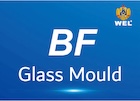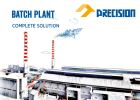Vidrala’s CO2 reduction targets have been validated by the Science-Based Targets initiative (SBTi)*.
The glass container manufacturer aims to reduce its Scope 1 and 2 greenhouse gas emissions by 47%, and its Scope 3 emissions by 28% by 2030.
The Science-Based Targets (SBTs) will aid in the prevention of rising the planet’s temperature more than 1.5°C compared to pre-industrial levels.
Vidrala aims to become the most sustainable glass business in the world by 2030. Its 2021 project with Glass Futures pioneered the development of the world’s most sustainable glass container using biofuel, and the organisation recently created a district heating network around its facility in Corsico, Milan.
The latter scheme is now improving air quality in the area and reducing the amount of CO2 being released into the atmosphere by 3,000 tonnes a year.
Fiacre O’Donnell, Director of Sustainability at Vidrala, said: "Science Based Targets are the globally recognised, externally verified gold standard in measuring corporate climate action and we’re delighted that our ambitious goals have been approved. We are committing to science-based targets to safeguard our future and make good on our long-term duty to protect our people and the planet.
“By being more innovative in our way of thinking, and constantly seeking new ways to reduce our greenhouse gas emissions, we'll protect and grow jobs, future-proof our business, and continue to create the most sustainable glass containers in the market.”
This will include creating some of the world's most sustainable glass furnaces, making investments in more environmentally friendly methods of logistics, working with cutting-edge suppliers, and ultimately creating the first zero-emissions glass bottle.
*The SBTi is a partnership between CDP, the United Nations Global Compact, World Resources Institute (WRI) and the World-Wide Fund for Nature (WWF).

























